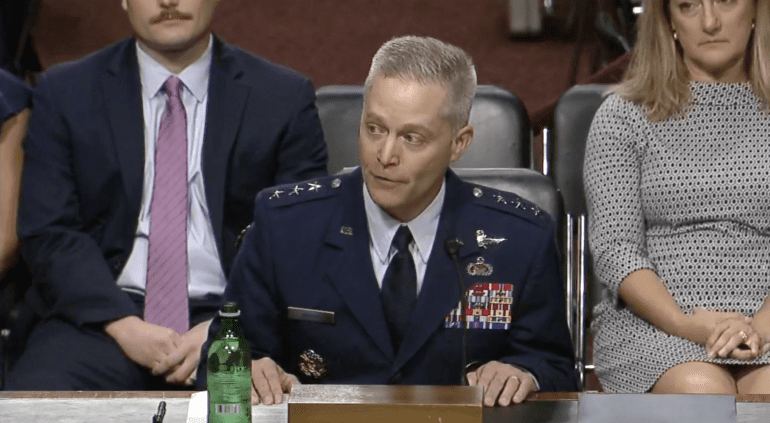TL;DR:
- Gen. Timothy Haugh, the nominee for NSA and U.S. Cyber Command, warns of the potential threat posed by generative artificial intelligence (AI) in interfering with the upcoming presidential election.
- Generative AI, exemplified by tools like ChatGPT, can create authentic-looking content from text prompts, making it susceptible to misuse by foreign adversaries.
- Senior national security officials, including the Cybersecurity and Infrastructure Security Agency Director, view generative AI as a significant issue for this century, with potential use by cybercriminals and nation-states.
- Gen. Haugh, with his experience in countering foreign threats to elections, emphasizes the importance of protecting the electoral process from manipulation.
- Despite broad support, the confirmation process for Gen. Haugh is uncertain due to a senator’s demand to change the Defense Department’s abortion policy.
- The nomination for Gen. Haugh’s dual-hat leadership role and the appointment of a new No. 2 for Cyber Command are awaited, reflecting efforts to strengthen the nation’s cyber defenses.
Main AI News:
In the fast-paced digital era, the realm of artificial intelligence (AI) continues to evolve, raising concerns about potential foreign interference in crucial events such as the upcoming presidential election. President Joe Biden’s nominee to lead U.S. Cyber Command and the NSA, Air Force Lt. Gen. Timothy Haugh, issued a stark warning about the risks posed by generative AI during his second nomination hearing before the Senate Armed Services Committee.
“As we gear up for the next election cycle, we must take into account the impact of generative AI and its role in shaping the narrative,” Haugh cautioned the committee. He emphasized the pressing need to guard against foreign actors attempting to manipulate our electoral process using this advanced technology.
Generative AI, often exemplified by tools like ChatGPT, has the ability to generate authentic-looking content from mere text prompts. This transformative technology has caught the attention of national security officials, including Cybersecurity and Infrastructure Security Agency Director Jen Easterly, who described it as “the biggest issue that we’re going to deal with this century.” The concern stems from the potential exploitation of generative AI by cybercriminals and hostile nation-states.
Haugh’s expertise in countering foreign threats to electoral integrity is unparalleled. He co-led the inaugural joint task force, collaborating with the NSA, to safeguard the midterm elections from foreign hackers. His illustrious career includes leading the 16th Air Force (Air Forces Cyber) and currently serving as Cyber Command’s deputy chief.
Despite his qualifications and broad support, Haugh’s confirmation process faces uncertainty due to Sen. Tommy Tuberville’s (R-AL) stance on senior military promotions. Tuberville seeks a change in the Defense Department’s abortion policy and has blocked several promotions until his demands are met.
Nevertheless, Haugh’s nomination is expected to progress smoothly, as he has already secured approval from the Senate Intelligence Committee. Once cleared by the Armed Services Committee, Haugh will assume the dual-hat leadership role, replacing Army Gen. Paul Nakasone.
Additionally, Maj. Gen. William Hartman awaits a full Senate vote for his nomination as Cyber Command’s new No. 2, reflecting the ongoing efforts to fortify the nation’s cyber defenses.
Conclusion:
The growing concerns expressed by Gen. Timothy Haugh and other senior security officials about the potential exploitation of generative AI in electoral interference highlight the need for increased vigilance in safeguarding democratic processes. As the threat landscape evolves, the market for cybersecurity solutions and technologies is likely to see a surge in demand, driven by government agencies, businesses, and individuals seeking robust measures to protect critical systems and information from malicious actors employing advanced AI techniques. The focus on election security will present opportunities for companies specializing in cutting-edge cybersecurity technologies and services, positioning them at the forefront of addressing emerging threats in the digital age.

